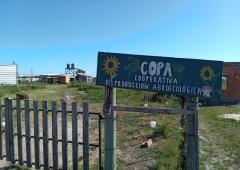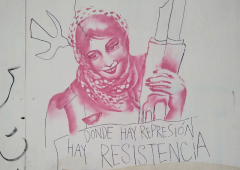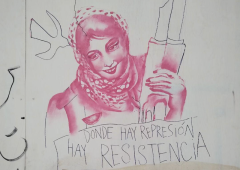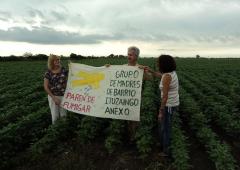Articles by: Raúl Zibechi
Los gobiernos progresistas de toda América Latina han pedido el fin del genocidio en Gaza. Pero muchos movimientos exigen acciones más profundas: cortar los lazos militares y económicos.
From food production to health and community justice, practices and experiments in autonomy across Latin America cultivate a thirdway alternative to electoral reform and revolutionary struggle.
Unraveling the multiple solidarities found across our continent that have converged in support of Palestinian life and dignity.
Desenvolviendo las múltiples solidaridades que se encuentran en nuestro continente y que han confluido en apoyo de la vida y la dignidad palestina.
Protegiendo los proyectos extractivos en los territorios rurales y habilitando el control de los paramilitares en las zonas urbanas, el poder militar facilita la acumulación por desposesión.
For decades, the EZLN has informed struggles down and up the continent. Amid climate chaos and endless war, they continue to imagine and create better worlds.
Durante décadas, los zapatistas han servido como luz orientadora para luchas a lo largo del continente. En medio del caos climático y la guerra interminable, siguen imaginando y construyendo mundos mejores.
Massive popular mobilizations are the only way to prevent the state and capital from defining the post-pandemic future.
La masiva respuesta de los pueblos es el único modo de impedir que el capital mafioso y los Estados puedan diseñar la coyuntura de la pandemia a su medida.
En la misma Casa Comunal de Totonicapán donde fueron velados los seis indígenas asesinados el 4 de octubre de 2012, se debería celebrar el lunes 4 de noviembre un encuentro entre comuneras y comuneros con la feminista estadunidense Silvia Federici, escritora y activista en el movimiento Occupy Wall Street.










